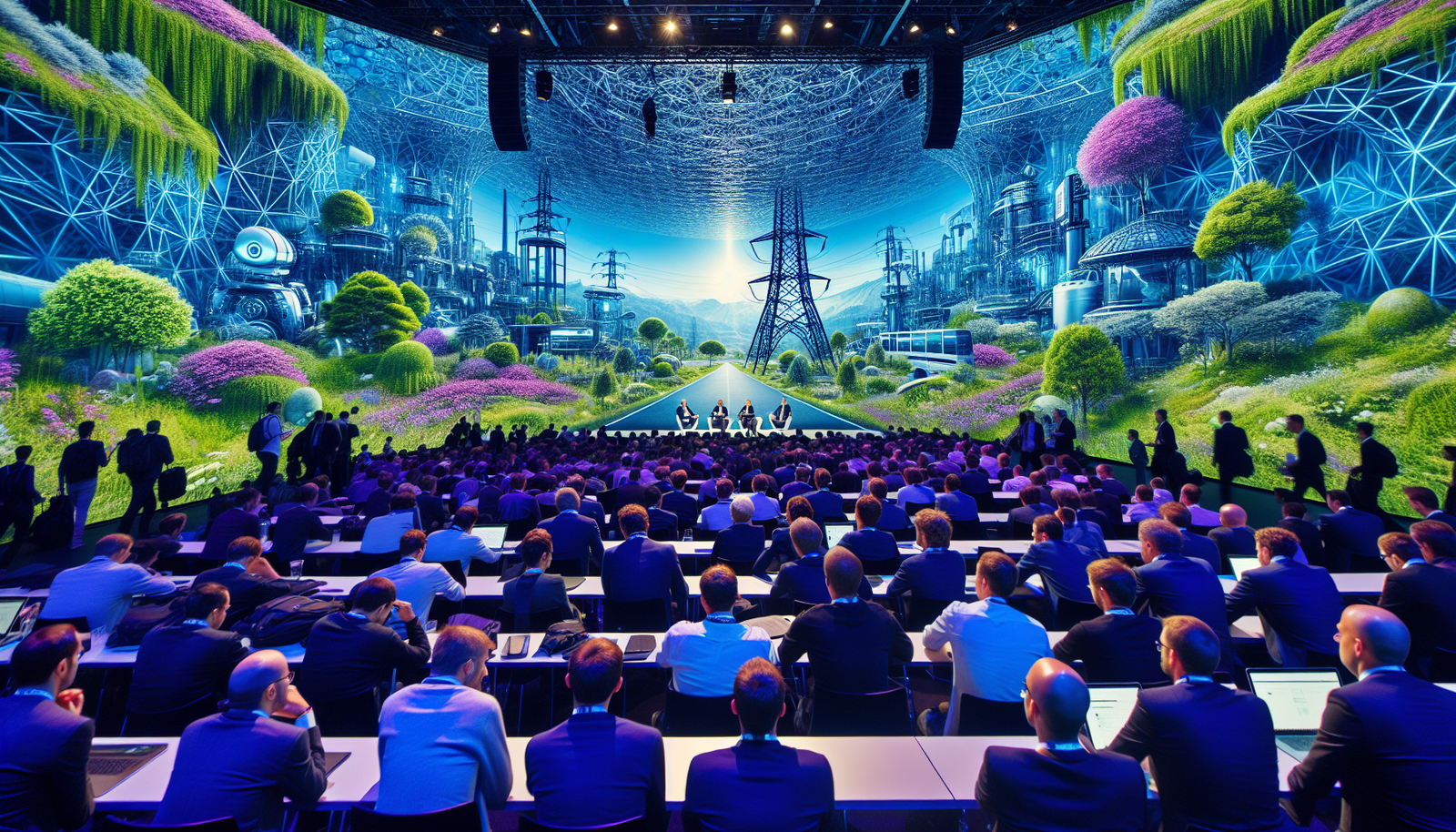The AI Summit in France, scheduled for February 10 and 11, 2025, raises fundamental questions about the environmental impact of energy-intensive technologies. Current climatic challenges require in-depth reflection on the energy consumption of artificial intelligence systems. The energies used by AI can exacerbate the climate crisis, making it urgent to have a constructive dialogue among innovation stakeholders.
The necessity for a transition to a sustainable model is emerging, highlighting the players committed to an eco-responsible future. The energy consumed by AI, which is constantly increasing, prompts a reevaluation of energy optimization strategies. The involvement of governments and businesses is essential to make AI ecologically responsible and, consequently, to reduce its carbon footprint.
AI Summit in France: a major ecological challenge
The Summit for Action on AI, initiated by President Emmanuel Macron, will take place on February 10 and 11, 2025, in Paris. This event aims to examine the ecological consequences of artificial intelligence and to encourage sustainable practices within this rapidly expanding industry.
Energy impacts of AI technologies
Currently, the use of artificial intelligence leads to a notable electricity consumption, estimated at 0.03% of global consumption, according to the International Energy Agency. This fraction, although seeming minimal, carries increasing significance in light of the growing energy needs of technological infrastructures.
Research indicates that a generative AI uses up to 30 times more energy than a traditional search engine. This difference highlights the significant ecological costs associated with these innovations that are supposed to facilitate human interactions and information processing.
Strategies for a sustainable future
France aims to bring the question of the environmental footprint of AI systems to the international stage. Recommendations issued by the CESE encourage the hexagon to make sustainability a central pillar of discussions. Proposals include promoting better management of digital resources and reducing the ecological impact of AI systems.
The Green AI report also focuses on presenting initiatives aimed at reducing the carbon footprint of technologies. Several strategies, such as optimizing algorithms, can help reduce energy needs while maintaining effective performance.
Renewable energies and artificial intelligence
Initiatives in favor of AI are not limited to environmental challenges. Technological advancements show how artificial intelligence can positively contribute to the integration of renewable energies. For example, computer systems optimize the management of energy networks, allowing for better incorporation of clean energy sources.
Concrete application cases
Kenyan farmers are utilizing AI to enhance their agricultural productivity while minimizing the watercourses used. The AI model developed to ensure clean drinking water production demonstrates how this technology can overcome pressing ecological challenges.
Additionally, projects such as an autonomous underwater vehicle dedicated to inspecting offshore wind turbines reveal the extent of green innovation potential. These achievements illustrate how AI can contribute to efficient resource management while respecting ecological standards.
Towards responsible solutions
The upcoming discussions at the Summit will encourage responsible innovation. The adoption of sustainable energy models is essential. Businesses must reassess their processes to mitigate the devastating effects of AI on the environment, incorporating low-energy consumption solutions.
A systemic and cross-sectoral approach will be crucial to reduce the carbon footprint related to AI. Industry leaders, government representatives, and researchers must collaborate to establish a legal and ethical framework guaranteeing a balance between innovation and sustainability.
Conclusion of the mobilization
The mobilization of technological stakeholders must be proactive. The omnipresence of AI cannot ignore its ecological challenges, and every step towards eco-responsible use will be decisive. The fight against the climate crisis requires a long-term collective commitment focused on innovative solutions and reduced energy expenditures.
FAQ on the environmental impact of energy-intensive technologies at the AI Summit in France
What is the significance of AI in the context of the climate crisis?
The use of artificial intelligence can exacerbate the climate crisis due to its increasing electricity consumption, currently representing about 0.03% of global consumption. The Summit will highlight this issue.
What initiatives will be presented at the Summit for a greener AI?
The Summit will address innovative strategies aimed at promoting sustainable AI initiatives, called “Green AI,” to reduce the carbon footprint of technologies.
How can artificial intelligence contribute to sustainability?
By optimizing energy networks and improving resource efficiency, AI can play a key role in the sustainable management of energy, thus supporting efforts against climate change.
What experts will be present at the Summit?
Scientists, economists, and opinion leaders in the field of AI and the environment will participate in the Summit to discuss technological and ecological solutions.
How does France plan to address the environmental balance of AI systems?
France will propose to broaden the international debate on the environmental impact of AI by advocating for eco-responsible standards and practices during the discussions at the Summit.
Is the use of generic AI compatible with sustainable development goals?
Yes, but it is crucial to regulate and optimize its use to avoid unsustainable ecological costs. The Summit will address this necessary balance.
What are the dangers of AI in terms of environmental impact?
AI, especially in its generative form, poses dangers due to its energy intensity that can exacerbate the effects of climate disruptions if not managed properly.
Will concrete solutions be found at the Summit?
The Summit aims to establish concrete actions and to facilitate collaborations between the public and private sectors to develop sustainable AI solutions.
How can the general public get involved in the debate on the directional impact of AI?
The Summit will include public sessions to raise awareness and mobilize the general public on the environmental issues related to AI and will encourage citizen initiatives.






